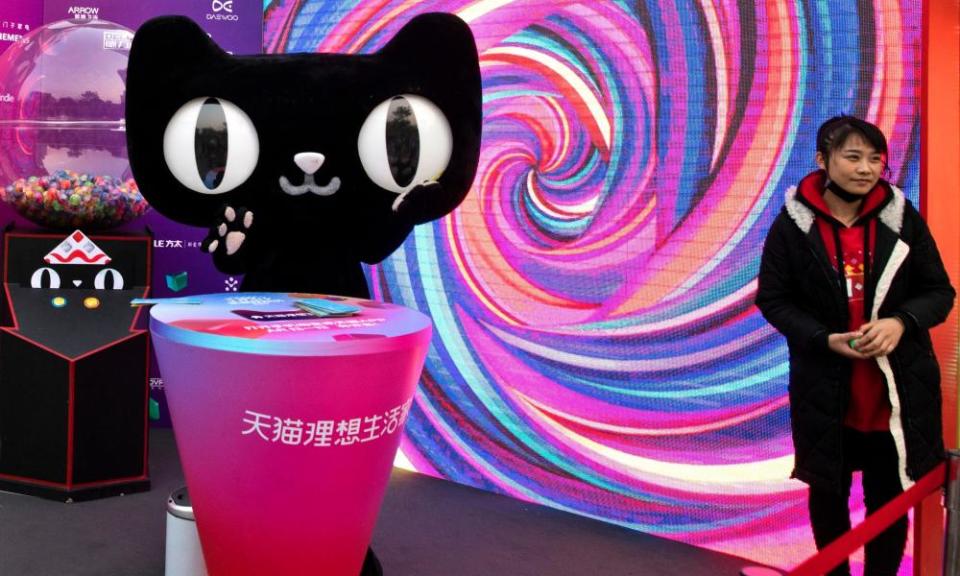'I love tech boys': Chinese job ads mirror sexist attitudes to women, study finds

Recruitment ads for Chinese internet giant Alibaba advertise a key perk: the company’s beautiful women.
A post first published in 2013 and still available on the company’s official Weibo account as of January, featured photos of female Alibaba employees in suggestive poses. “They want to be your coworkers. Do you want that too?” the ad said. A 2012 recruitment video showed a female employee pole dancing, and a montage of female employees saying, “I love tech boys.”
These are some of more than 36,000 job postings reviewed by Human Rights Watch (HRW) between March 2017 and January this year that demonstrate the predominance of sexist attitudes towards women in the Chinese workplace.
HRW, which reviewed job ads on company and government websites and social media sites since 2013, found both private and public sector employers frequently specified “men only” or “men preferred” applicants.
Even China’s globally known tech companies such as Alibaba, Baidu and Tencent, used women to attract talent, HRW said. “Sexist job ads pander to the antiquated stereotypes that persist within Chinese companies,” said Sophie Richardson, China director at HRW, at the release of their report.
“These companies pride themselves on being forces of modernity and progress, yet they fall back on such recruitment strategies, which shows how deeply entrenched discrimination against women remains in China,” she said.
Alibaba said in an emailed statement that it has “clear and well-defined guidelines on providing equal opportunity regardless of gender” and would conduct stricter reviews of recruiting advertisements. The company said 47% of its employees are women, who also account for one-third of management positions. “Alibaba exemplifies one of the best practices in our industry when it comes to gender equality,” the statement said.
HRW researchers found jobs from college counsellors to teachers and delivery managers were earmarked for men. This year, 19% of civil service job ads listed “men preferred” or “suitable for men” in their descriptions. Last year, 13% of civil service jobs specified male only applicants, according to the report.
When job ads are specified for women they often come with physical appearance requirements. A 2015 job ad for assistants for a court in Beijing sought women between the ages of 18 to 25, with “good skin tone” and “no obvious scars”. The ad said they should be between 162cm and 173cm (5’3” and 5’6”) in height and weigh less than 65kg (143 lb).
Some employers were looking for only married women with children, based on the logic that they would not leave their posting to have children or get married.
China’s communist party has named gender equality as one of the pillars of the party’s ideology – former Chinese leader Mao Zedong famously said women “hold up half the sky” in China.
Just 20% of heads of Chinese government agencies and companies were women, according to a 2010 report from the All-China Women’s Federation. Last year, China ranked 100 out of 144 countries in the World Economic Forum’s gender parity index.

 Yahoo Finance
Yahoo Finance 